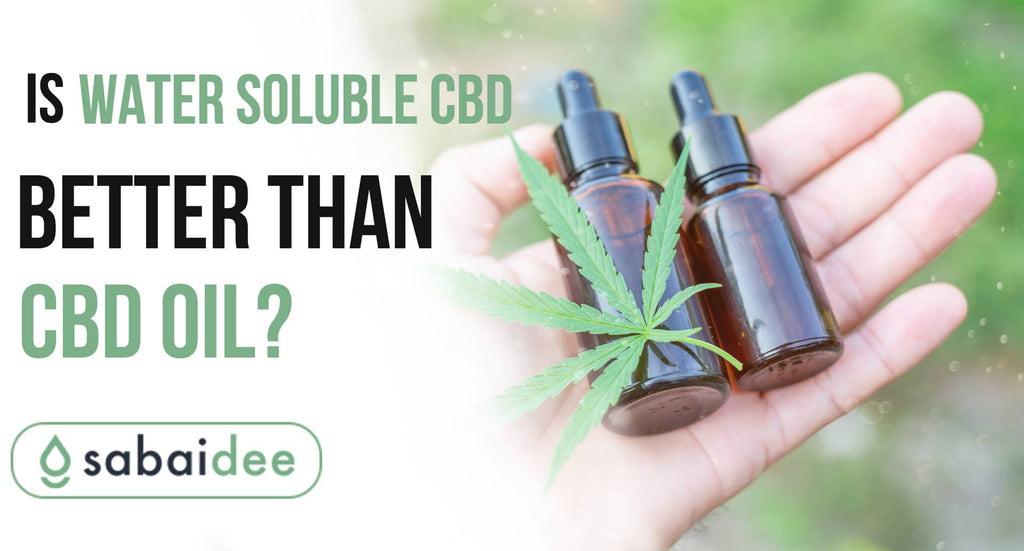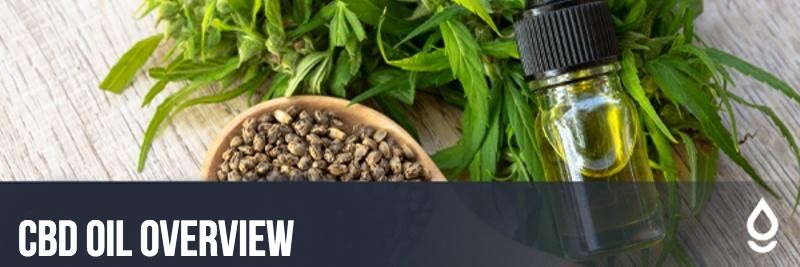
Cannabidiol, or CBD, is a useful plant compound that comes from the hemp plant. It is a safe product that you can use for various conditions. When it comes to CBD products, there are different forms. For instance, you can purchase water-soluble CBD or oil. They have different uses and characteristics. Is water soluble CBD better than CBD oil? Here are some considerations to help you decide the form that would be best for you.
Is Water Soluble CBD Better Than CBD Oil?
CBD Oil Overview
CBD oil is a product in which the CBD part of the cannabis plant has been removed and combined with coconut or hemp seed oil to dilute it. While CBD oil includes the cannabinoid feature of the hemp plant, it doesn’t contain tetrahydrocannabinol or THC.
When the product is in oil form, you can use it in different ways. For instance, it is safe to ingest, inhale or apply topically to the skin. Topical CBD skin products include Comfort Cream and Relief Rub. If you ingest it normally, then just 10% to 20% will make its way into your body’s bloodstream.
How to Make Water Soluble CBD
Is CBD water soluble? It can be. Water-soluble means that a product can be blended evenly into water. To make this possible, a substance is separated into ions or molecules. Once it’s separated, it will dissolve into water in the same way as salt, sugar or alcohol. Water repels oil, so the two substances don’t mix. You can make CBD, THC and other oils compatible with water by formulating them as micro- or nanoemulsions. These are stable substances that are discernibly homogeneous mixtures of water and oil. They can be prepared in condensed forms that can be mixed with water. Those who transform CBD oil into different forms use surfactants to complete the process. Surfactants dilute the CBD oil. The oil becomes a powdery extract that your body can absorb and digest.
Water Soluble CBD vs Oil
Is water soluble CBD better? Just like CBD oil, CBD that’s developed to be water-soluble does not have THC. The difference is that your body is able to absorb it more easily. Also, once CBD is converted into the water-soluble version, it can be added into almost any product including foods and beverages, such as CBD tea. Since your body can absorb more of it, you’ll experience more of its benefits.
When you add it to products, you don’t have to worry about low absorption levels. Along with this, you won’t have a psychoactive response to the product since it does not contain THC. Water soluble CBD oil may be the best option if you don’t like the way that the oil tastes. It may also be the best option if you aren’t using it as a topical agent.
What are the Benefits of Water Soluble CBD?
Along with the absorption power and body impact of water soluble CBD, the product comes with benefits like giving you access to more CBD-infused beverages and edibles. It also lets manufacturers offer a consistent dose for every use, which may make it easier to track the amount that you’re taking. These products are easier to take with you when you’re traveling, and it’s also easier for you to ingest them.
Will the Water Soluble Option Change the Market?
While CBD companies make purchasing easy with product options like oil packages, water soluble CBD may change the market since it’s an easier product to use. Those in the industry confirm that there are few water soluble CBD oil products currently available. However, some companies are showing interest in it and are working toward adding them into their lines.
Some industry experts would like to see cannabis replace alcohol, transforming it into a similar social substance. If this happens, it would be something that would allow people to have fun and relax without suffering from a miserable hangover the next day.
CBD beverages and how they’re reaching the market can be compared to the gluten-free food industry. When gluten-free foods first came out, they weren’t very tasty, but they did give people who have Celiac Disease a different meal option. Also, the introduction of these foods inspired people to experiment. Today, gluten-free foods are better quality products. In fact, most people who try gluten-free bread consider it comparable to regular bread.
This same situation is happening in the cannabis industry. Water-soluble beverages aren’t as tasty as alcohol-based ones, but they may give those who drink them the emotional and physical result that they want without the downside. Time will allow the industry to invest in developing food items and drinks that people will enjoy. It will likely need its own category just like different types of alcohol. For instance, whiskey is different than tequila.
CBD is growing in popularity. Keep in mind that 10 years ago, everyday consumers were unfamiliar with the product. Today, industry experts predict that the market will grow to $22 billion this year and $260 billion in two years.
It Comes Down to Personal Preferences
Is water soluble CBD better? When it comes to water soluble CBD vs oil, you’ll want to consider your personal preferences. If you don’t mind how CBD oil tastes and enjoy the experience of vaping, then the oil version of the product is ideal for you. However, if the flavor is unpleasant or if you don’t like vaping, then water-soluble CBD is likely the better option. We recommend trying both products to see what works best for you and your body.
Water Soluble CBD FAQ
Is water soluble CBD oil better?
Is water soluble CBD better? When it comes to water soluble CBD vs oil, you’ll want to consider your personal preferences.
What is water soluble CBD?
Unlike CBD oil, water-soluble CBD is a CBD extract that has been scientifically converted to a water-soluble form, making it much easier for the body to absorb.
How is CBD made water soluble?
The process involves pulverizing cannabinoids into nano-sizes, and combining them with an emulsifier and a carrier oil, in an attempt to create a water-soluble CBD.
Shop Our CBD Products


